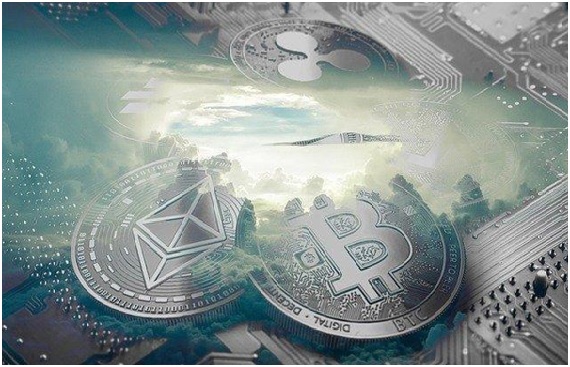Origin of Bitcoin - The people's money

Have you ever wondered about a world where the money is entirely digital, private, instant and free from bank or Government interference?
You can book the best hotels, shop at famous outlets, and take flights to your dream destination, even opening no bank account, worrying about hassles of currency exchange, and not having a single penny in your pocket.
Well, the world of bitcoin has been making it a reality.
What does Bitcoin mean?
In the current era of virtual connectivity, at one point or the other, it is not uncommon to come across the term “Bitcoin.” Ever wondered what it is?
Bitcoin is a cryptocurrency invented by a group using the anonymous name of Satoshi Sakamoto. It is a decentralized digital currency with no government control, no middlemen involvement, programmable, and open to all.
In 2008, Occupy Wall Street blamed enormous banks for charging over the top expenses. The banks were abusing borrowers’ cash, deceiving the customers, which prompted the introduction of bitcoin.
Bitcoin aimed at eliminating the middlemen, waving the interest fee payment, and introducing a transparent transactional environment. A complex decentralized system, bitcoin is independent of banks.
Companies like Paypal, Microsoft, and Expedia promote Bitcoin.
How does it work?
Bitcoin is a virtual currency in technological terms. It is an exchange of digital information that allows the buying or selling of goods and services. The transaction gains its security and trust by running on a peer-to-peer computer network, which is the same as BitTorrent or Skype or similar file-sharing systems.
Bitcoin uses public-key cryptography, and cryptography ensures authorization.
Users need a private key to transact, and this key is complex enough to hack.
Bitcoin chips away at a massive public ledger called a "Blockchain," where blocks incorporate every affirmed transaction. With each block entering a framework, it gets communicated to the peer network of clients for approval. The two clients must know about every action throughout this.
There are various platforms available like Bitcoin Rush software for safe bitcoin trading.
Example of a Bitcoin Transaction
Kathy wants to buy a necklace from Caren. She will send (pay) bitcoin to Caren’s public address, like a bitcoin bank account. While sending the bitcoin, she will close the exchanges with her private key, much like giving OneTime Password or OTP.
This private key will be specific for Kathy, and it will verify that she is the sender of this digital currency.
Once the miners have verified the transaction’s validity, the bitcoin gets sent to Caren’s public address. Caren can now unlock the bitcoin with her private key.
What is bitcoin mining?
Mining here refers to processing. It ensures the Bitcoin process adds a new set of transactions or "blocks" in chronological order to the chain. It ensures the security of queue maintenance.
Mining delimits blocks every time each transaction gets completed or bitcoin exchange takes place.
What is a bitcoin wallet?
To become a bitcoin user, one must first sign up for a cryptocurrency wallet to put in the bitcoins.
Wallet technology comes in five modes, namely Desktop, Mobile, Web, Paper, and Hardware, each having its own sets of merits and demerits.
There are three types of Bitcoin Wallets:
1. Full Client Wallet
In this, the user will control and manage the entire transaction from the beginning to the end independently. We do not recommend it for beginners
2. Web Client Wallet
It is just the opposite of the Full Client Wallet type since it relies on third-party servers. The third-party will operate on behalf of the user and control the user transactions.
3. Lightweight Clients
It is a standalone email client that connects to a mail server for accessing a mailbox. It would store the user’s bitcoin, but it needs a third party owned server to access the network and make the transaction.
Is bitcoin legal?
Bitcoin was legal in the US, Japan, UK, Canada, and most other developed countries as of February 2020.
The Internal Revenue Service (USA) has taken an increasing interest in Bitcoin. It has issued guidelines for taxpayers too.
In the emerging market, the legal status of bitcoin varies dramatically. China has intensely limited bitcoin but has not criminalized the holders of bitcoins.
India banned banks from dealing in bitcoins and has left the general lawful status of cryptocurrencies quite unclear.
It is essential to look at bitcoin laws specific to each country.
Transferring bitcoin from one country to another is possible without limitation. However, the exchange rates against the government-approved currencies can be very volatile. That is not only because the speculation often drives the price but also because bitcoins have a relatively smaller market than traditional currencies.
Bitcoins have severe flaws for those who seek anonymity. Hence illegal activities are moving to other forms of cryptocurrencies.
Bitcoins exist in a free commercial market; subsequently, there is a giving position. Bitcoin addresses don't need private information like bank accounts. There is no identity proof of the users; hence it had initially raised concerns about bitcoins for illegal activities.
In the early years, many illegal usages have taken place. All because of this perceived anonymity linked to bitcoin. For instance, drug traffickers used it, with the best-known example being the Silk Road Market. It was a section of the so-called dark web where users could buy drugs. All transactions of the Silk Road used bitcoin. In October 2013, the FBI finally shut these down.
What are the advantages of Bitcoin?
1. No restriction on payments
It is possible to send and receive bitcoins anytime to any part of the world. Border restrictions, bureaucracy, bank holidays, etc., do not halt the bitcoin transactions. Bitcoin permits its client to be in full control of their cash.
2. Fee waiver
There is no fee charged for receiving bitcoins. Few wallets even let the users control how large a fee they will pay while spending. Higher fees can ensure faster confirmation of transactions. Fees are entirely unrelated to the amount transferred, so it is possible 500 bitcoins for the same fee as it would cost to send one bitcoin. Merchant processors also exist for assisting merchants in carrying out transactions, converting the bitcoins to monetary standards, and saving the assets legitimately to the shipper ledgers day by day. As bitcoins are services-based, they are available at a much lower fee than a credit card or Paypal.
3. Middlemen elimination
Bitcoin exchanges are irreversible, making sure about, and don't contain any close to home data or client sensitive data. Irreversible transaction shields the trader from the loss brought about by extortion or fake chargebacks. Traders can grow to new business sectors where Visa is not accessible or where misrepresentation rates are very high. A definitive outcome is lower expenses, lesser regulatory expense, and more prominent business sectors.
4. Transparency
Every bit of information concerning the Bitcoin money deftly is speedily available on the blockchain for anybody to check and use consistently. No individual or affiliation can control or control the Bitcoin show as the cryptography guarantees security. It builds trust in the core of bitcoin for being transparent, predictable, and completely neutral.
What are the disadvantages of bitcoin?
1. Acceptance degree
Many people are still not aware of bitcoin. Every day more businesses accept bitcoin because they see the advantages of seeing so. However, the list remains extremely small and still needs to grow further to benefit from the network effects.
2. In the process of maturing
Bitcoin software is still in the beta stage, with many incomplete features under development. New tools, services, features, etc., are still being developed to make bitcoin more insecure and open to the majority. A portion of these is not ready for everybody. The more significant part of the bitcoin organizations are entirely new and still do not offer any insurance. Hence Bitcoin is still maturing.
3. Volatile nature
The total value of bitcoin in circulation and the number of businesses using bitcoin is still tiny compared to what it could be. Therefore, even relatively minor events, traits, or business exercises can influence the cost. The instability will diminish as the bitcoin market and innovation development. It is difficult to predict how the bitcoin market will eventually play out.
Conclusion
Bitcoin, over the last 11 years, has indeed disrupted the world’s economy and financial system. It provided a payment system ahead of its time. “Being your own bank” and “owning your own bank” as opposed to storing your own money in a third-party financial institution or payment processor is revolutionary. It is just the beginning. The bitcoin revolution still has miles to go. It would be super exciting to see where we are going to go on from here. It would be a remarkable shift towards a cashless society.
Read More News :
How is Bitcoin Trading making People Millionaire overnight?
Honeywell Invests in Trinity Mobility, to Accelerate Smart Cities Leadership

.jpg)

.jpg)